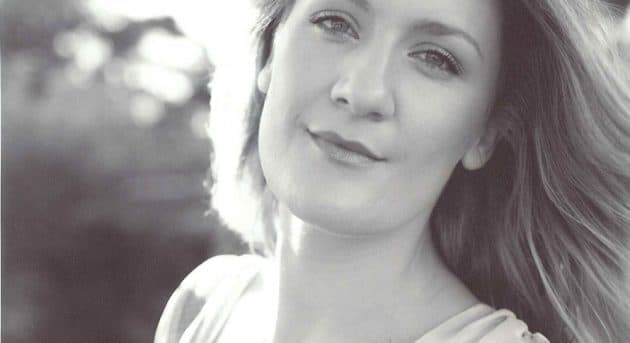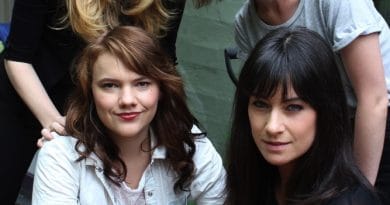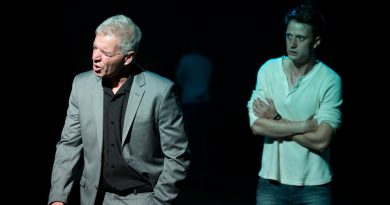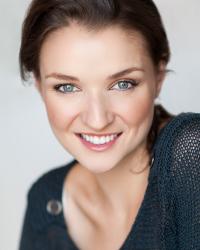How stage actors can get into TV – Rachel Cole with Virginia Gay
Welcome to Stage Door Shrink, a regular column penned by Rachel Cole aimed at helping performers chortle their way to a #win.
A note from Rachel:
Little known fact: In 2013, I had a booming career in TV as the face of Optus. In the infomercial, I pretended to be on the phone to a fellow mum friend, telling them how great my broadband was, at JUST $119 a month. (Just?! I must have married up) Young mum. Lower North Shore. Toddlers running around my feet. Right up my alley…
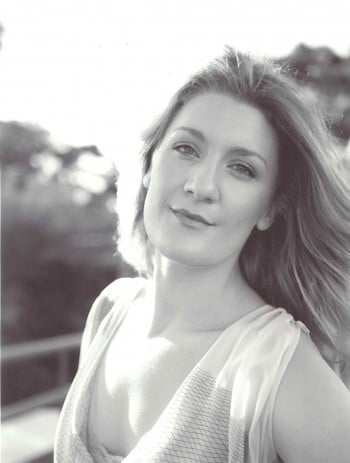
Whilst this could not be further from my alley, I struggled with TV work, as I had trouble suppressing my low brow South Sydney accent and controlling my campy facial expressions on camera. What was up my alley though, was the unending smorgasbord of free food and drinks. (The calories don’t count if you get it for free.) Apart from that, I have very little advice to offer on making it in TV. I suspect it’s because my nose, which sticks out of my face like a sail of the Opera House, doesn’t look so good on camera.
I do however; see the usefulness of TV exposure for furthering your Musical Theatre career. Particularly when star casting is becoming commonplace: Delta in Cats/Neighbours, Tim Campbell in Home & Away/Shout & Wicked, Gary McDonald in Mother and Son/Guys and Dolls, Craig McLachlan in Neighbours/ Chicago & Rocky Horror etc. The transition from TV to Musical Theatre seems more common than the reverse. We don’t really have the industry tradition or size in Australia where performers seem to switch back and forth from TV to stage as in New York with the likes of Taye Diggs, Megan Hilty, Aaron Tveit etc.
One of the few actors who has managed to achieve this is Virginia Gay. Best known as Frances Jones on Winners & Losers, Virginia has just finished staring in The Hayes Theatre production of High Society. Having studied Acting at WAAPA before being cast in All Saints, she has always managed to maintain work on both TV and stage. I really enjoyed interviewing her, and her advice for breaking into TV is excellent.
According to Virginia Gay…
Get comfortable in front of the camera
It is imperative that you get as comfortable as possible with that gaze being so close to your face- it’s a very intimate relationship. The camera will see your fear. Therefore, be in everybody’s film- student film, art films, short films, and friend’s films. Learn to love the camera. And learn to trust that the camera loves you.
Do a screen acting course
Not only does this force you to get in front of a camera, it will force you into a situation of nerves in front of a camera. It may be a steep and painful learning curve, but it’s worth it. There are lots of great courses around: 16th Street, The Nest, The Moore Grace Acting Studio, ACTT, Screenwise etc…
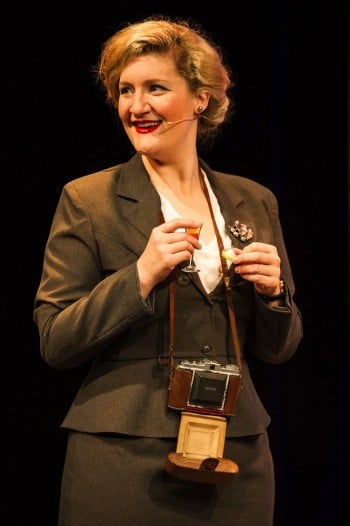
Tell your agent
Tell your agent of your intention to focus on TV. Sometimes we performers think we receive every brief our agent receives, when in reality, they do lots of vetting for our specific abilities and areas of focus. Be upfront and clear about the direction you want to move as a performer.
Know the difference between stage and TV
Stage actors and musical theatre performers often speak with a lot of agility their faces. We are a very over the top, exaggerated and heightened bunch. This is usually unnecessary when acting for camera. When you trust your scene partner and relax, you can express a lot by doing very little with your face and body. I just want to make clear a difference between ‘expressing’, and ‘being seen’. You don’t need to ‘express’ anything for the camera. You just need to think, and it’s seen. You don’t need to push the feelings out onto your face. That’s when the camera sees a lie- someone working too hard.
Film yourself all day
At WAAPA, I hired a camera for 24 hours and held it in front of my face all day, to get used to the feeing of how much the camera saw. This will show you the importance of subtlety and doing nothing, and when to choose those moments to give more. It will get you used to that intimate gaze, get you used to being seen.
You hate yourself on film- Get over it
So rarely do we see our faces when it isn’t in mirror form. The camera exposes your face at all angles. Which is a mix of ‘that doesn’t look like me’, and ‘Oh God, of course that’s what I look like’…. At times like these, trust your lighting guy. Don’t be deterred by your early horrors of your face on screen. Watch it back, learn your angles, what angles suit your face, sure, but also forget about it and be honest, if you can. And adjust your performances accordingly… In fact, thinking too much about what you look like on screen means you’ll always be pouting. And that’s a waste of everybody’s time.
Get a good show reel
If you can get scenes that show you off and look pretty professional, then you’re winning. You can edit these yourself this fairly easily with iMovie if you’re on a budget, or hire a professional to help you.
Say yes to everything
The more you do, the more you will get asked to do. During All Saints, I would take any job, paid or unpaid offered to me. That way, instead of people just thinking, ‘Oh she’s that nurse from TV’, they had seen me sing, do drag, cabaret, hosting etc. The more you do, the more you get asked to do. It will also make you a better performer, learning to working under pressure and develop your versatility.
Be yourself, everyone else is taken
One of the reasons I booked All Saints was because my large chin was the same shape and size as John Howard who worked on the show. This ‘asset’, which I previously felt would prevent me from making it on film, actually got me my first job.
Be great to work with
Every performance that you do is a great audition for your next one. Aside from my first audition (which was for producers who were committed to getting new faces on TV), every job I’ve gotten has been through being seen doing another previous job, or through a personal connection. Be genuine, enthusiastic, show range, be positive and ask lots of questions. Mel Vallejo (Winners & Losers), had a guestie on Packed to the Rafters for 6 weeks, and was so good to work with; she was at the front of the networks minds when they cast Winners & Losers. Apart from being good business, it’s just the right thing to do.

